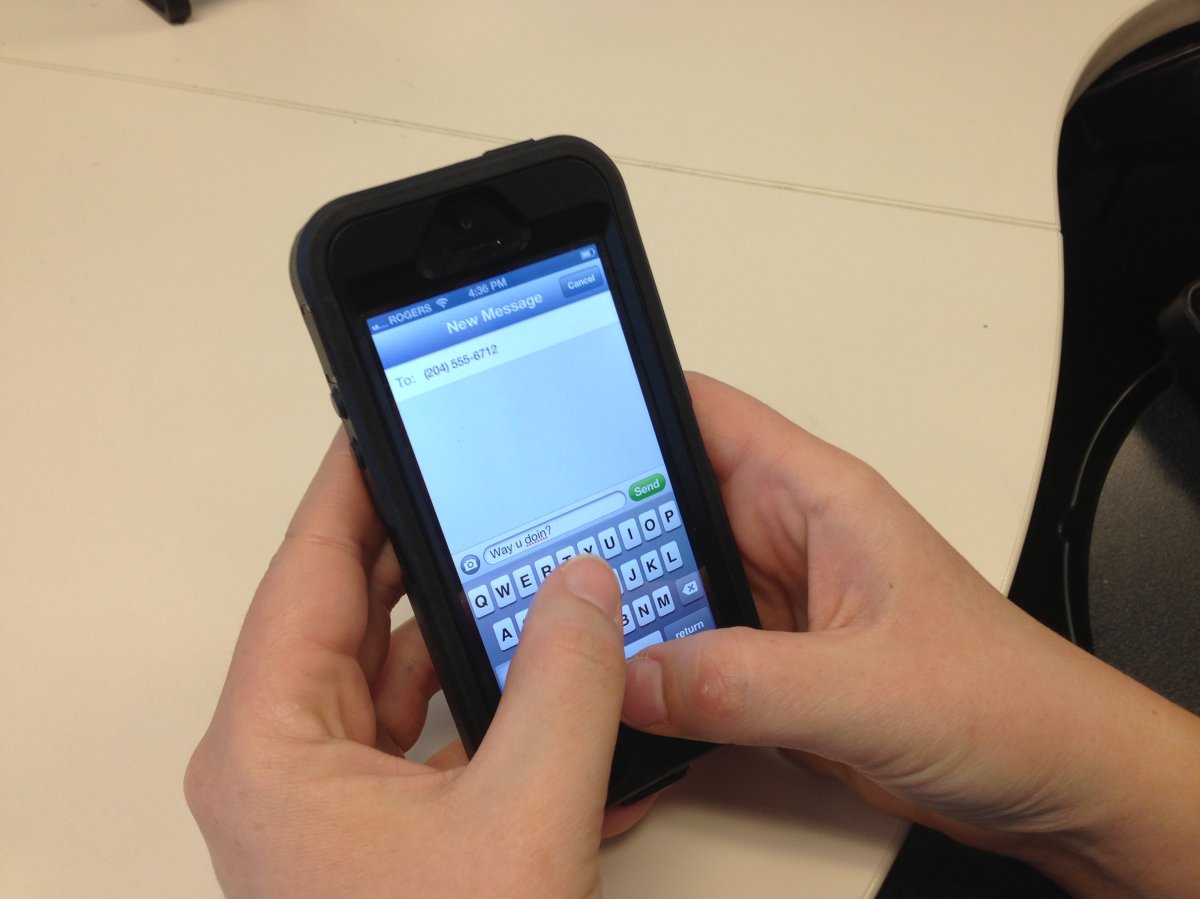A study at the University of Winnipeg appears to confirm theories that texting is making young people shallow.

According to a news release from the U of W Thursday, more than 2300 first year psychology students were surveyed on-line for three consecutive years.
The results show that “students who are heavy texters place less importance on moral, aesthetic, and spiritual goals, and greater importance on wealth and image,” according to the U of W release.
“Those who texted more than 100 times a day were 30 per cent less likely to feel strongly that leading an ethical, principled life was important to them, in comparison to those who texted 50 times or less a day. Higher texting frequency was also consistently associated with higher levels of ethnic prejudice.”
The U of W says its researchers Dr. Paul Trapnell and Dr. Lisa Sinclair also took texting into the lab. In the study some students texted, some spoke on cell phones, and some did neither. Then, all students rated how they felt about different social groups. Those who had been texting rated minority groups more negatively than the others did.
The University of Winnipeg says about 30 percent of students reported texting 200 plus times a day; twelve percent reported texting 300 plus times per day. Those who texted frequently also tended to be significantly less “reflective” than those who texted less often.
The experiments were meant to test the theories of some scientists and the so called “shallowing hypothesis” described in The Shallows, a best selling book by Nicholas Carr. The theory suggests “ultra-brief social media like texting and Twitter encourages rapid, relatively shallow thought and consequently very frequent daily use of such media should be associated with cognitive and moral shallowness.”
- A spoonful of olive oil a day could reduce risk of death from dementia: study
- Shopify stock sinks as it warns of slower growth amid tepid consumer spending
- Trans Mountain pipeline expansion will boost Canadian oil prices ‘for years’: MEG Energy
- Apple unveils new, larger iPad models. How much do they cost?




Comments